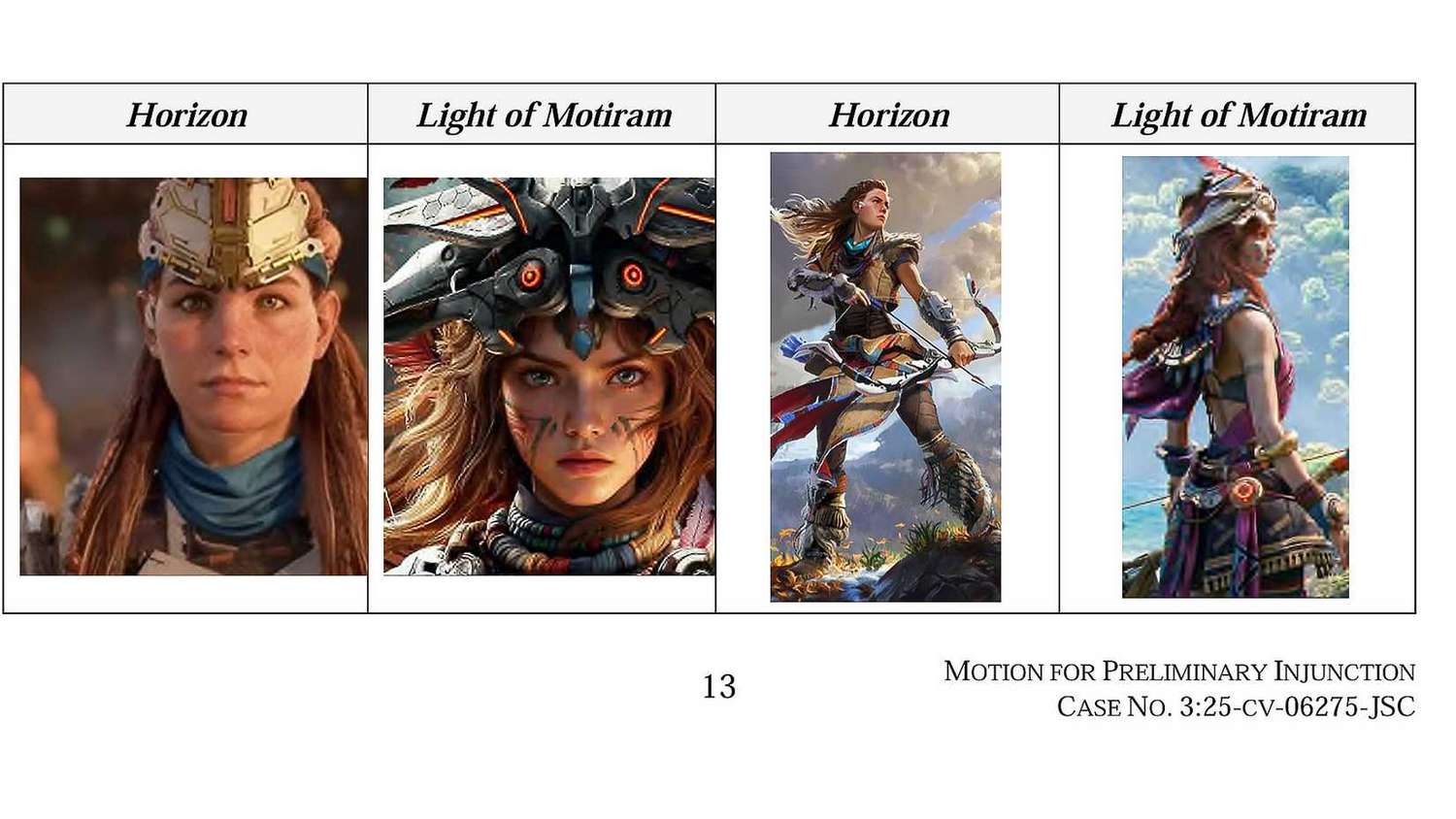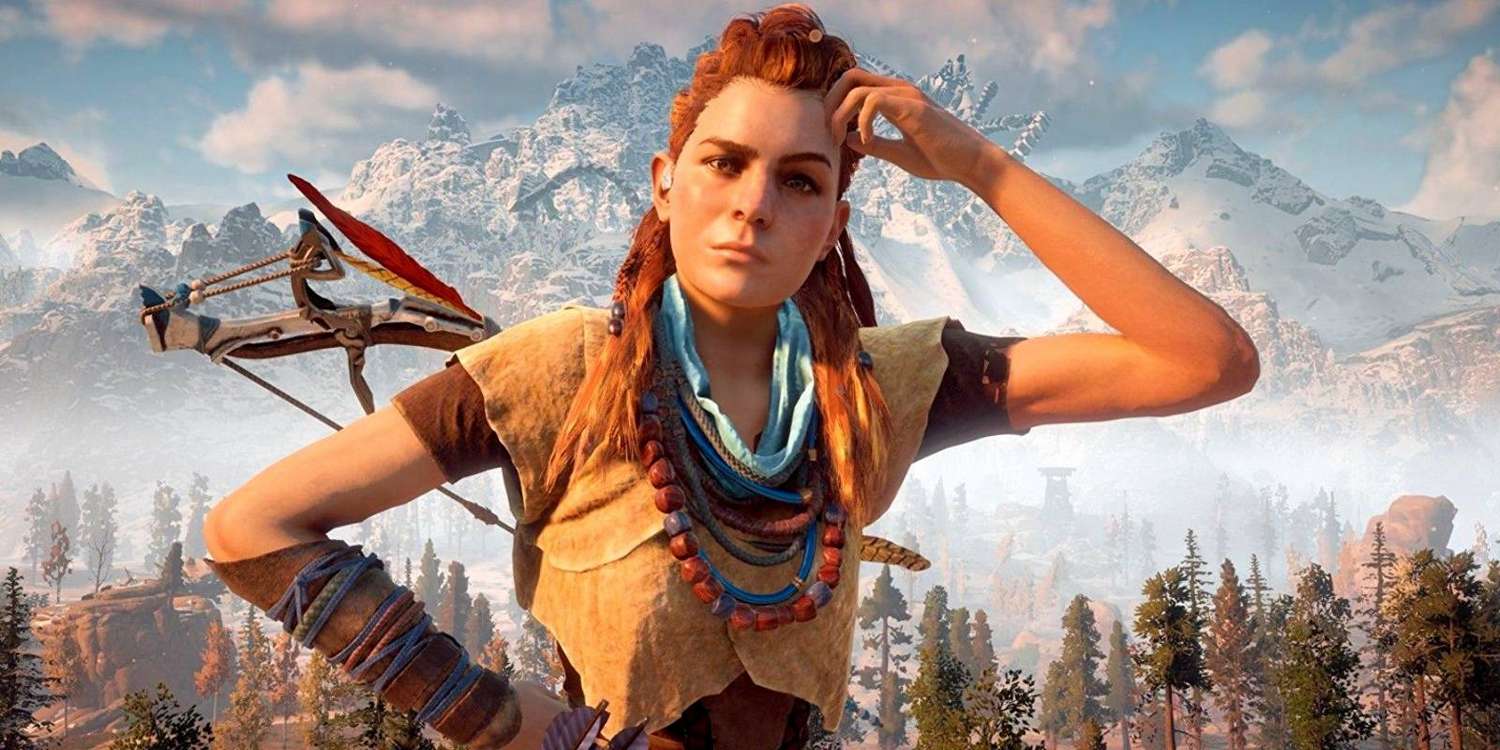Legal Firestorm Erupts: Sony Demands Preliminary Injunction Against Tencent Over ‘Slavish Clone’ of Horizon IP
Popular Now
 Counter-Strike 2
Counter-Strike 2
 Candy Crush Saga
Candy Crush Saga
 Call of Duty
Call of Duty
 Auto X Drift Racing 3
Auto X Drift Racing 3
 Free Fire
Free Fire
 Geometry Dash
Geometry Dash
 Rust
Rust
 League of Legends
League of Legends
 FIFA 23
FIFA 23
 Roblox
Roblox
 The high-stakes intellectual property battle between gaming titans Sony Interactive Entertainment (SIE) and Tencent has escalated dramatically, with Sony filing for a preliminary injunction in a U.S. federal court. This aggressive move aims to immediately halt promotional activities and bar the use of allegedly infringing elements from Tencent’s upcoming open-world survival title, Light of Motiram.
The high-stakes intellectual property battle between gaming titans Sony Interactive Entertainment (SIE) and Tencent has escalated dramatically, with Sony filing for a preliminary injunction in a U.S. federal court. This aggressive move aims to immediately halt promotional activities and bar the use of allegedly infringing elements from Tencent’s upcoming open-world survival title, Light of Motiram.
SIE, the creator and owner of the globally successful Horizon franchise (Horizon Zero Dawn, Horizon Forbidden West), is fighting to protect its premium first-party intellectual property, which it claims has been “slavishly cloned” by the Chinese conglomerate. The legal filing comes as a forceful response to Tencent’s earlier motion to dismiss the copyright and trademark infringement lawsuit, which was originally filed in July 2025.
The Core of the Dispute: A “Knock-off” Character and Setting
At the heart of the injunction request are the striking similarities between Light of Motiram and the Horizon series. Sony’s complaint focuses heavily on the game’s protagonist—a flame-haired “tribal warrior huntress”—who the company argues is an undeniable look-alike of Horizon’s iconic lead, Aloy. Furthermore, the lawsuit cites pervasive copying of the franchise’s unique aesthetic, including:
- Robot Animal Machines: Light of Motiram allegedly features colossal, animalistic machines that mirror the distinctive mechanical creatures of the Horizon universe.
- The “Focus” Device: Similarities extend to a purported look-alike of the highly recognizable augmented reality device used by Aloy.
- Tribal Elements and Post-Apocalyptic Setting: The overall visual and narrative themes of a post-apocalyptic world where tribal humans coexist with advanced machinery are claimed to be directly lifted.
- Sound Infringement: Adding a controversial layer to the dispute, Sony alleges that Tencent even hired a composer who previously worked on the Horizon score to create music for the Light of Motiram trailer, resulting in similar audio tracks.
 Sony Dismisses Tencent’s “Nonsense” Defence
Sony Dismisses Tencent’s “Nonsense” Defence
Tencent’s defense, filed in September 2025, argued that Light of Motiram merely uses “time-honored tropes” and “ubiquitous genre ingredients” prevalent in other titles like The Legend of Zelda and Far Cry. They also attempted to claim the lawsuit was premature, citing a quiet delay of the game’s release date from late 2025 to a distant Q4 2027—an action taken shortly after the initial lawsuit was filed, which also saw the removal of many contentious screenshots from the game’s Steam page.
Sony has vehemently rejected these arguments. In a recent court filing, the PlayStation maker labeled Tencent’s defense as “nonsense” and asserted, “The damage is done—and it continues.” The company contends that the extensive promotion of Light of Motiram has already caused demonstrable “consumer confusion,” with numerous journalists and fans publicly decrying the blatant similarities. This confusion, Sony argues, constitutes irreparable harm to the Horizon brand and jeopardizes its continued success, including announced expansion plans for the franchise and the upcoming Horizon Zero Dawn film adaptation, which has been confirmed to be moving into production in 2026.
The Legal Maneuvering: Jurisdiction and Corporate “Shell Game”
The legal complexity is further heightened by Sony’s accusation that Tencent is attempting to play a “shell game” with its corporate structure to evade liability. Sony alleges that Tencent is deliberately obscuring which specific subsidiary—such as Aurora Studios or Polaris Quest—is primarily responsible for the game’s development and marketing. Despite this, Sony insists that Tencent Holdings, the parent entity which holds the U.S. trademark for Light of Motiram, remains “at the helm” and subject to the court’s jurisdiction.
The preliminary injunction, if granted, would represent a significant win for Sony, effectively preventing Tencent from leveraging the look and feel of the Horizon IP for marketing purposes while the broader legal case on copyright infringement proceeds. Sony is pushing for the injunction to be enacted before the end of 2025, aiming to prevent any further promotional damage to its lucrative gaming franchise.
 Implications for the Gaming Industry and IP Protection
Implications for the Gaming Industry and IP Protection
This lawsuit serves as a critical test case for intellectual property protection in the highly competitive and high CPC (Cost Per Click) global gaming market. The outcome will have far-reaching implications, setting a new precedent for how courts view the copying of non-literal elements—such as a distinctive character, art style, and mechanical creature design—within the framework of copyright law.
As the legal battle unfolds, the industry is closely watching whether Sony can successfully draw a clear line between the use of common gaming tropes and outright copyright infringement. For developers, the message is stark: the deliberate imitation of another studio’s unique and successful creative work, especially after being denied a license, carries severe legal and financial risks.









